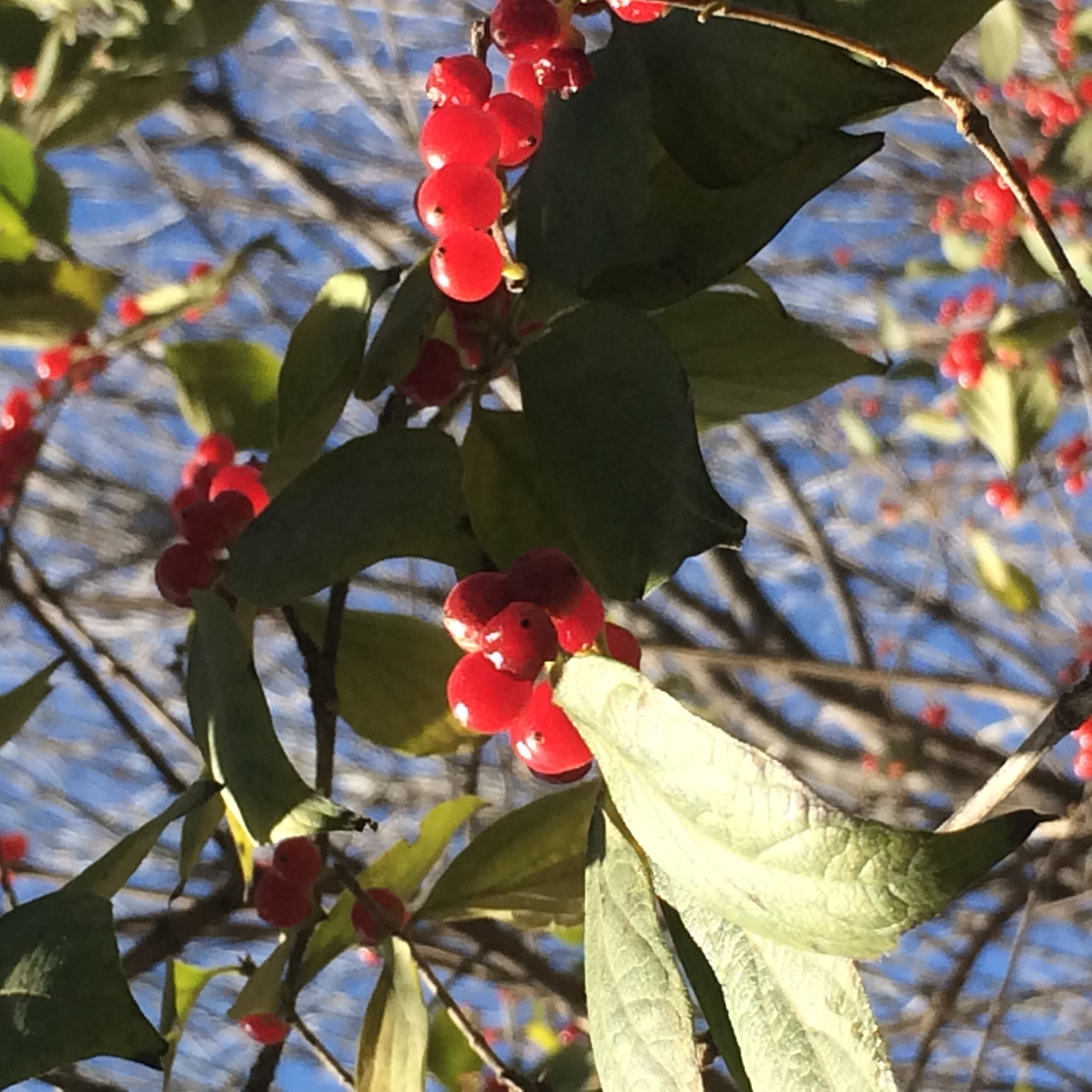Romance in Chinese Verses
Love enriches human experiences and feelings, either happiness or sadness. It is one of the common themes of literature, including Chinese ancient poetry. Ancient Chinese poets were very sensitive to the feelings of affection or longing.
The beauty of Chinese ancient poetry lies mainly in its musical rhythm and expressions. The former makes poems sound like songs, evocative of emotions and feelings. The latter, especially imaginative, profound or unrestrained expressions always catch the reader’s eye and strongly strike a responsive chord in their heart. Even the poetry with simple language is also always full of wisdom and philosophy that prove enlightening.

-Red beans (Copyright: Wang Shu)
The classic Chinese poets experienced the world with a sensitive soul and a substantial proportion of Chinese verses about feelings of love is preserved by means of writing on bamboo slips or books. Love enriches poetry with soul and life; poetry, conversely, with symbolic and romantic imagery, relieves the poets of the inmost feelings of love. The classical Chinese poem, which expresses the feelings of love or longing, is full of romance, beauty and charm. The following poem was written by Tang Dynasty (唐朝 618-907) poet Wang Wei (王维 699-795), one of the most famous men of arts and letters of his time:
Xiānɡ sī
相 思
Hónɡ dòu shēnɡ nán ɡuó,
红 豆 生 南 国,
Chūn lái fā jǐ zhī?
春 来 发 几 枝?
Yuàn jūn duō cǎi xié,
愿 君 多 采 撷,
Cǐ wù zuì xiānɡ sī.
此 物 最 相 思。LOVE SEEDS
Red beans grow in southern land,
In spring how many tree buds put forth?
Gather them till full is your hand,
For they, symbolic of love, would make you think of me.
The poem describes red beans, which are seen as ‘love seeds’ in China. The ancient legend goes that there was a woman who wept bitter tears under a tree over the loss of her husband who had fallen on the battlefield. This sorrow-stricken woman died from being in overwhelming mourning for her beloved, and her tears turned into red beans at last. That is why Chinese ancient people like to wear accessories inlaid with red beans.
By means of giving symbols, providing literary allusions and describing natural phenomena, the poet always means more than he says and leaves imagination to readers, especially in pursuit of love or when conveying feelings of loving and longing for, instead of conveying love to others by frequently saying “I love you” or “I miss you” directly. Chinese people are more likely to express feelings of love in a more roundabout or symbolic way. This poem conveys a deep feeling of yearning in an ingenious way, letting the beloved one think about oneself through gathering red beans, symbolic of love and longing.
Nothing is sweeter than love. However, it seems that love appears not as the seeds of happiness but sources of grief in Chinese ancient poetry, for poets always sing about it in all their deep sadness and depression. Su Shi (苏轼 1037-1101), also known as Su Dongpo (苏东坡), a great poet and essayist in the Song Dynasty (宋代 960-1279), gave such feelings in an evocative but miserable Ci (词), a type of lyric poetry in the tradition of classical Chinese poetry and a poetic form developed in the Tang Dynasty, about the Tune: A Riverside Town (《江城子》):
Jiānɡ chénɡ zǐ
江 城 子
( Yǐ mǎo zhēnɡ yuè èr shí rì yè jì mènɡ )
(乙 卯 正 月 二 十日 夜 记 梦)
Shí nián shēnɡ sǐ liǎnɡ mánɡ mánɡ.
十 年 生 死 两 茫 茫。
Bù sī liɑnɡ, zì nán wànɡ.
不 思 量, 自 难 忘。
Qiān lǐ ɡū fén, wú chù huà qī liánɡ.
千 里 孤 坟,无 处 话 凄 凉。
Zònɡ shǐ xiānɡ fénɡ yīnɡ bù shí, chén mǎn miàn, bìn rú shuānɡ.
纵 使 相 逢 应 不 识, 尘 满 面, 鬓 如 霜。Yè lái yōu mènɡ hū huán xiānɡ.
夜来 幽 梦 忽 还 乡。
Xiǎo xuān chuānɡ, zhènɡ shū zhuānɡ.
小 轩 窗, 正 梳 妆。
Xiānɡ ɡù wú yán, wéi yǒu lèi qiān hánɡ.
相 顾 无 言, 惟 有 泪 千 行。
Liào dé nián nián chánɡ duàn chù, mínɡ yuè yè, duǎn sōnɡ ɡānɡ.
料 得 年 年 肠 断 处, 明 月 夜, 短 松 冈。TUNE: A RIVERSIDE TOWN
(A DREAM ON THE NIGHT OF THE 20TH DAY OF JANUARY 1075)
For ten long years, the living and the dead have been kept apart and blank.
Though try not to think about you often,
How can you be forgotten?
Your lonely grave, a thousand miles away,
To whom can I my grief confide?
Even though we met again,
Could you recognise me?
For my face is pinched and drawn, and frosted is my hair.Last night I dreamt of returning home,
By the window, you were waking up with grace,
Each looked at the other without uttering a word,
From our eyes tears gushed.
Which place most hurts the heart?
Your grave clad with short pines, where only the moon shines!
This tearful ci poem, which was composed after the poet dreamt of his deceased wife in the night in Mizhou (密州) (present-day Zhucheng (诸城), graphically describes the sharp contrast between a vivid dream and harsh realities of life, catching the mood of profound melancholy. In deep yearning and mourning for his beloved wife, the poet’s heart was full of distress and loneliness.
The following well-known verse, also a memorial poem, has been written by Yuan Zhen (元稹 779-831), a great poet and writer of the Tang Dynasty, to lament his wife Wei Cong (苇丛 789-809) who died years ago.
Lí sī wǔ shǒu (qí sì)
离思 五 首(其四)
Cénɡ jīnɡ cānɡ hǎi nán wéi shuǐ,
曾 经 沧 海 难 为 水,
Chú què wū shān bú shì yún.
除 却 巫 山 不 是 云。
Qǔ cì huā cónɡ lǎn huí ɡù,
取次 花 丛 懒 回 顾,
Bàn yuán xiū dào bàn yuán jūn.
半 缘 修 道 半 缘 君。THINKING OF MY DEAR DEPARTED
(THE FOURTH OF FIVE POEMS)
No water’s spectacular enough when you have seen the Sea Cang;
No clouds majestic enough after seeing that crown, the Mt. Wu’s peak.
I pass by the flowers without deigning to look back,
Partly for Tao I seek, partly for the sake of thee.

-Wu Gorge, Yangtze River, China (Copyright: Xinhua)
The poem depicts the poet’s unswerving loyalty to his wife, with whom nobody can be comparable in his heart. His love for her was as deep as the water of vast Sea Cang, as impressive as the clouds which crown the lofty Mount Wu peak, a mountain in which the immortal dwells according to Chinese ancient legend. So heartbroken was the poet after his wife’s death that he retired from the world in accordance with the principle of Taoism, which emphasises on moderation and less desires, so the poet was no longer attracted by beautiful flowers, metaphors for charming women.
As a glimpse of these poems indicates, the classic Chinese poets sensitively experienced the world and they translated the expression of their observations, insights and feelings into poetical language. The perceptions and intuitions of them about human feeling of love were so fascinating and inspiring that their poems evoked beauty, sympathy and deep meaning over the ages.
By Ding Xiyuan(丁喜媛)
 Share on Facebook
Share on Facebook Share on Twitter
Share on Twitter Share on LinkedIn
Share on LinkedIn